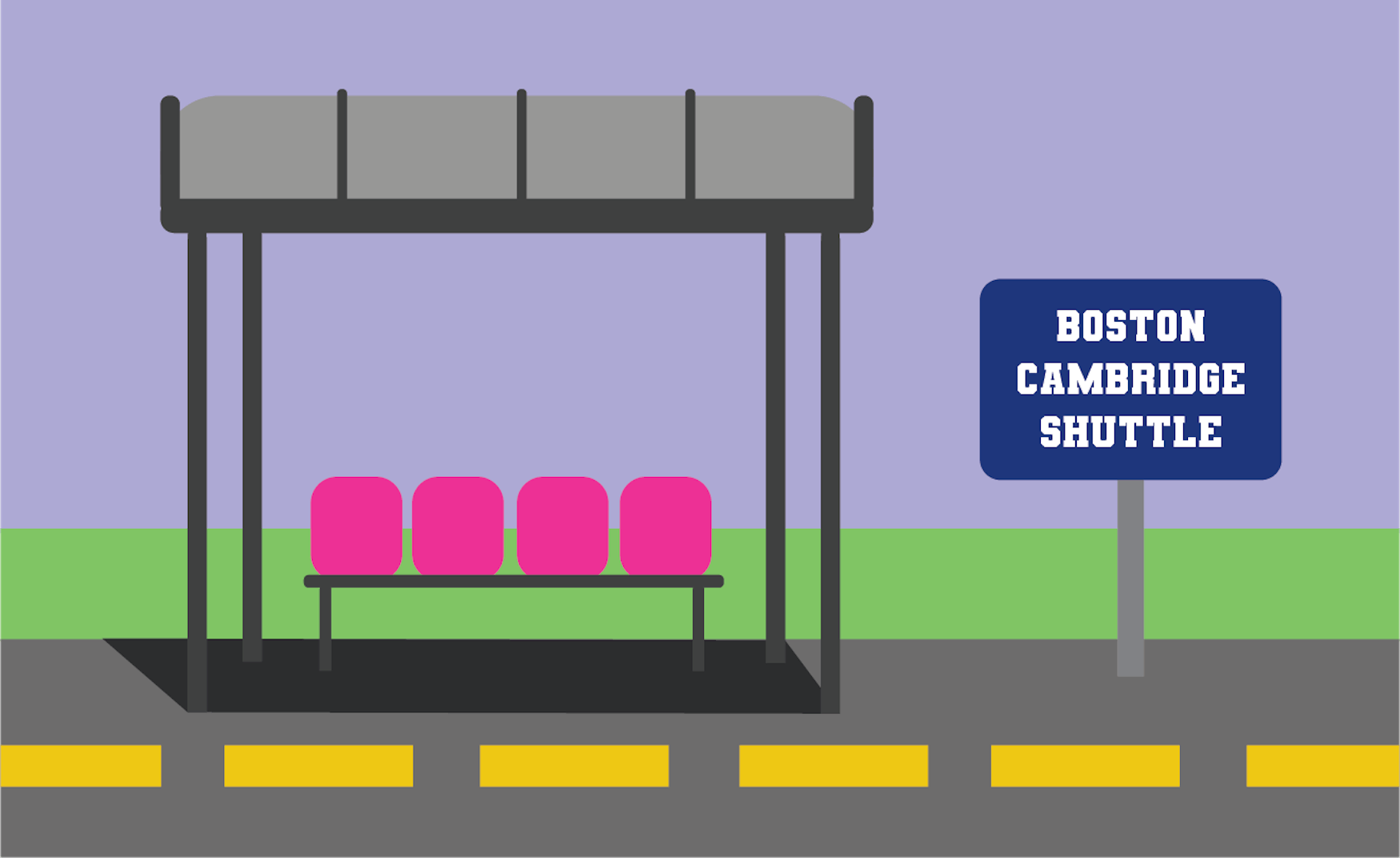A conversation on transportation: Brandeis options don’t meet student needs
The Boston/Cambridge shuttle service was reinstated on Feb. 17 after being suspended since the shuttle accident on Nov. 19, per a Student Union email. This board would like to acknowledge that many members of the Brandeis community are still dealing with the aftermath of the accident.
Though conversations about the accident have mostly subsided at the University level, resources are still in place to support community members. We continue to grieve the loss of fellow Brandeis student Vanessa Mark and stand in support of those who were directly or indirectly impacted by this tragedy. We also recognize the difficulty that comes with making the choice to use the shuttle again and urge the University to continue to provide students with spaces to discuss and heal from the accident.
The new shuttles, operated by WeDriveU, feature new safety precautions, including seatbelts for all passengers. The company has also stated its commitment to thorough screening practices when hiring drivers and regular maintenance of its vehicles. According to the Public Safety website , the shuttle now runs from Friday to Sunday in 1.5-hour loops, picking up and dropping off students from Usdan, Harvard Square, and Massachusetts Avenue. The re-instated service also includes an app, Tripshot, that students can use to track the buses in real-time. This feature is an improvement from the tracking tools available in the past, which were often unreliable or unavailable.
However, this board feels that requiring an additional app to successfully utilize the shuttle service is inconvenient and not ideal, especially considering that a separate tracking software is required for tracking the Joseph’s Waltham shuttle and the campus shuttles. Furthermore, since the implementation of the new service, members of this board and the broader Brandeis community have experienced delays and inconsistencies with the Boston/Cambridge shuttle. As was the case with the previous service, the shuttle does not arrive at pickup locations on time, and cancellations are not communicated with students the most efficiently.
Due to the inconsistencies with the BranVan and the Boston/Cambridge shuttle, students are often left on their own to find alternative modes of transportation. For students balancing the rigorous academics of Brandeis along with the emotions of the recent shuttle accident, issues like this only strain and stress the student body further.
This board urges the University to find a streamlined approach to communicating delays and cancellations so that students are not left waiting — especially at later hours — without the reassurance that the shuttle will arrive. Early communication, coupled with consistent alternative modes of transportation, will allow students to confidently and comfortably move around the campus, Waltham, and the greater Boston area.
In light of this, this board would like to highlight the availability of other transportation services in the greater Boston area. Apart from Uber, Lyft, and other ride-sharing services, the MBTA commuter rail and various buses run frequently from Waltham to Boston/Cambridge throughout the week. More information can be found on the MBTA website, as well as the Brandeis Public Safety website. Since the Brandeis Boston/Cambridge shuttle does not run every day and can be unreliable, this board urges the University to participate in the MBTA Semester Pass Program, which offers college students an 11% discount in MBTA bus, subway, commuter rail, and ferry fares.
Multiple schools, including Harvard University and the Massachusetts College of Pharmacy and Health Sciences, already participate in this program. While it is true that students attending these schools likely rely on MBTA services more often due to the location of these universities, Brandeis prides itself on its proximity to Boston and in providing community members access to the city.
It only makes sense, then, that the University helps students afford alternative services that facilitate access to the Boston area daily, not just on the weekends when the shuttle is operating.
As these shuttles return to their scheduled routes, it is understandable that students may remain hesitant. With experiences as emotionally charged as the accident, it may take students quite some time to feel comfortable with Brandeis transportation. We urge the Brandeis administration to reach out to students again and offer alternative transportation, such as providing students with compensation for Uber or Lyft rides or utilizing other campus vehicles for student use.
Although the shuttle will provide a part of the student body with needed transportation, Brandeis must account for the whole campus community the best it can. We urge members of the student community to check on their friends and make sure that they are doing alright, and if you are able, try to give space and listen to friends’ experiences.
Also, here are other resources for students if you are seeking professional help: the Brandeis Counseling Center; the Prevention, Advocacy, and Resource Center; Brandeis Health & Wellness Promotion; the Center for Spiritual Life; and in case of emergency, Brandeis Emergency Medical Corps, Brandeis’ student-led emergency responders.
The accident affected everyone differently, and people grieve and recover on their own schedule. Brandeis has always based its mission as a University on values of equity, inclusion, and transparency, and we ask the University to represent and demonstrate these pillars of belief now more than ever particularly in regards to transportation. The Brandeis community can find alternatives to transportation options provided by the University. For example, if you have a car on campus, reach out to friends who are wary of campus transportation and offer a ride if you feel comfortable doing so. Nonetheless, although there are grassroot options to fill gaps in transportation, the University is obligated to provide transportation solutions that fulfill all students’ and community members’ needs.




Please note All comments are eligible for publication in The Justice.